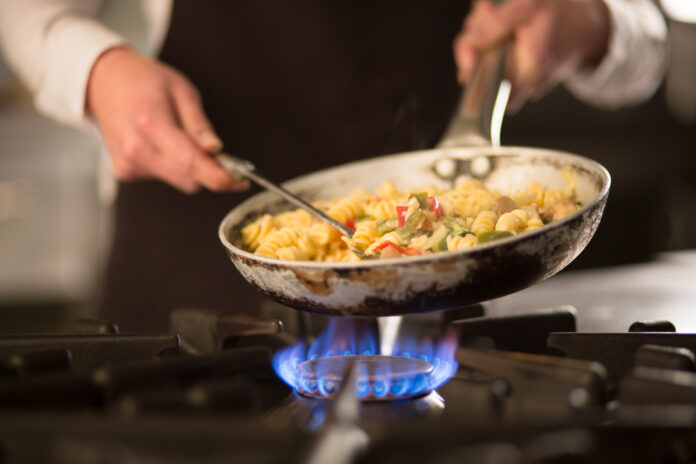The way you prepare your food could be making you fat.
A study from Wageningen University in the Netherlands found that the texture of your food can greatly affect eating speed, which in turn might increase or decrease your overall calorie consumption.
One of the first things we are told on any weight loss journey is to eat more slowly. This is largely because it takes time for your brain to register that you have had enough food.
When we eat, our stomachs begin to stretch, sending a signal to our brain that says we are full. But this physical stretching is not the only factor involved in satiety. Our bodies also release a complex cocktail of hormones that help us feel satisfied after our meals and control our hunger levels throughout the day.
beaer_photo/Getty
The hormones act more slowly than physical feelings of fullness, with many taking between 10 and 20 minutes to reach their maximum level. Therefore, it is important to give your body the time it needs to process these signals.
Fast eating might also affect digestion and long-term blood sugar control, potentially increasing your risk of diabetes.
But trying to eat more slowly is easier said than done. We are often told to practice mindful eating, concentrating on every bite and pausing between each mouthful, but there might also be more practical ways to slow your eating.
In the Wageningen University study, which was published in the journal of Food Quality and Preference, 54 healthy participants were given 12 different meals with a range of textures and toppings. These comprised penne pasta and/or carrots that were either served al dente (just cooked) or well boiled. The participants also received the same dishes with the addition of a simple tomato sauce.
The researchers found that the softer dishes were eaten with larger bite sizes and fewer chews than the harder dishes, and the addition of sauce made the food more swallowable by moistening its texture and sticking it together.
In total, the soft penne was consumed 42 percent faster than hard penne, while soft carrots were eaten roughly 94 percent faster than hard ones. The addition of the tomato sauce also increased eating speed, by a further 30 percent.
The researchers did not directly measure the impact of eating speed on energy consumption, but previous research has demonstrated that energy intake can increase by roughly 26 percent for an increased eating speed of 35 percent.
So simply by opting for harder or raw foods and cutting back on sauces, you can passively reduce your calorie intake without having to make any drastic dietary changes.


